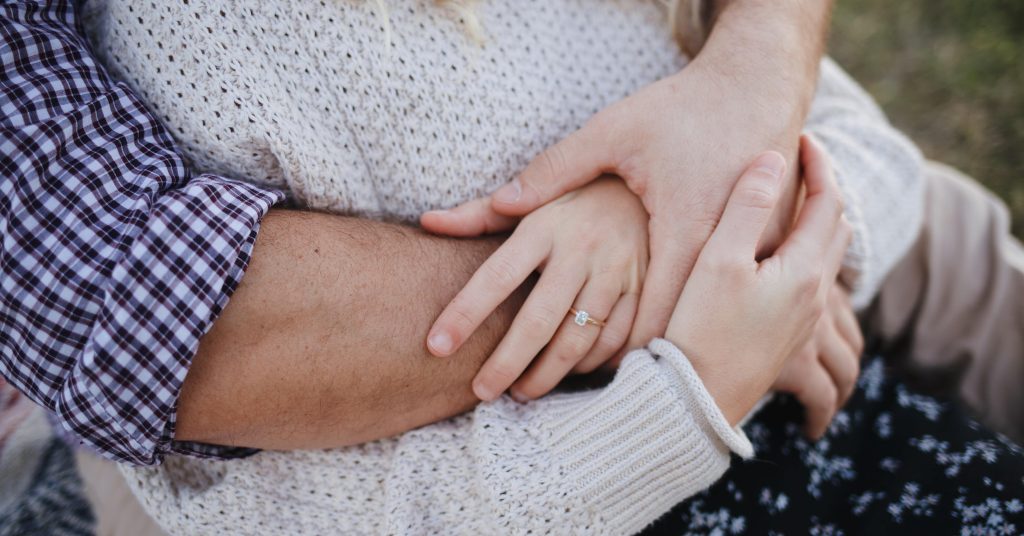According to a common phrase, a person needs at least eight hugs a day to live a normal life. We tested whether hugging can actually provide significant health benefits.
“We need four hugs a day to survive. We need eight hugs a day to keep us alive. We need 12 hugs a day to grow” - media regularly quote this phrase from the American psychotherapist Virginia Satir. ABOUT benefit hugs are written regularly: supposedly they are necessary for happiness And health.
Virginia Satir is one of the first family therapists, her called mother of systemic family therapy. She suggested a method by which emotional ties between family members are restored. Scientists still write about the Satir method articles, and by her name named Institute of Family Therapy in Canada.
However, not only psychologists, but also doctors speak about the beneficial effects of hugs on a person. Hugs reduce stress - this connection has been revealed more than once research. During one of them, 404 people talked every day for two weeks about their conflicts, the number of hugs per day, and the positive and negative emotions they experienced. Summarizing the results, scientists saw the connection between hugs and good mood. The hugged participants noticed that they felt less negative about the conflicts and troubles that had happened during the day.
But stress reduction has not only a subjective, but also a measurable objective expression: for example, a decrease in the level of cortisol, the stress hormone, in the blood. IN experiment In 2013, volunteers each talked to their partner on the phone. But one group had only a telephone at their disposal, while the other also had a soft object in the shape of a person, which they hugged while talking. In the second group, after 15 minutes of conversation, cortisol in the blood and saliva decreased more noticeably than in those who spoke with their loved one only on the phone.

Hugs also have a beneficial effect on the heart. Scientists subjected 183 volunteers experienced the stress of public speaking, but before doing so, the subjects held the hands of their loved ones for ten minutes and then hugged them. During stress, their blood pressure rose less and their heart rate increased less than in the control group, whose participants did not experience affectionate touches.
Deep touch pressure therapy is based on the effect of hugs. It is used with children with autism or attention deficit disorder to reduce their anxiety. Experiments were carried out and on adults: the pressure calmed them and reduced the excitation of the sympathetic nervous system. A weighted blanket works on the same “hug principle,” researchers noticedthat it helps people with mental disorders against insomnia.
There is even evidence that hugging may reduce the risk of disease. The subjects first reported for two weeks about the daily support they received from loved ones, including in the form of touches and hugs. They were then given a nasal spray containing the viruses that cause colds, isolated and monitored for symptoms. Scientists noticed protective effect of hugs. Fewer people who received a lot of support, including tactile support, became infected with the virus. And those who became infected had milder symptoms than those who received little support from loved ones.
“The observed protective effect of hugging may be due to the physical contact itself or because hugging is a behavioral indicator of support and closeness. Either way, those who receive more hugs are somewhat protected from infections and symptoms associated with the disease." done authors' conclusion.

Moreover, support is useful not only for the one to whom it is provided, but also for the other party. At least that's what the data says experiment. 20 couples took part in it. The girl's brain was scanned while her loved one was being shocked. Participants who held their man's hand during the procedure showed less activity in the amygdala, which regulates anger and fear, and more activity in areas of the brain associated with reward and maternal behavior.
Touch influence on the development of the child. Skin-to-skin contact has an analgesic effect in healthy newborns and promotes weight gain, shorter hospital stays, and increased neural responses in premature infants. Touch in the family is a guarantee that in the future children will be able to express their emotions more freely.
Scientists use the term touch deprivation is a lack of touch. Spotted a linear relationship between a lack of touch and feelings of loneliness, anxiety, increased stress, the likelihood of depression and secondary immunodeficiency disorders.
During the pandemic, when many countries began to introduce strict lockdown measures, scientists had an additional opportunity to study the effects of a lack of touch in real life. It turned out that the less people in isolation had tactile contact with other people, the more often they complained for anxiety.
So science has not yet established the optimal number of hugs per day, but scientists have noticed a connection between tactile contact and stress reduction, lowering blood pressure and strengthening the immune system.
Is it true
If you find a spelling or grammatical error, please let us know by highlighting the error text and clicking Ctrl+Enter.







